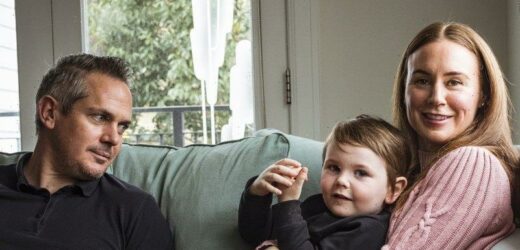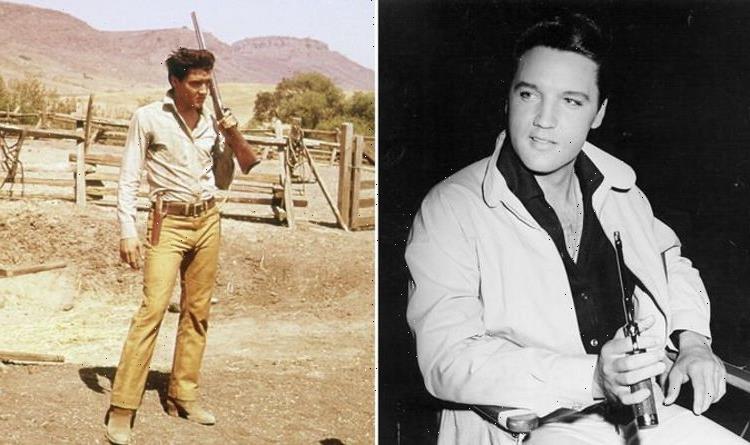It didn’t take long for Jenny and her partner to discover the perils of IVF.
In their quest to have a child, the Melbourne couple found an egg donor in Sydney through a legitimate local website recommended by their IVF clinic.
Jenny was a victim of an extortion attempt by an egg donor.Credit:Justin McManus
At first, there was no cause for concern. They met their would-be donor in person, felt they could trust her, and then “got the ball rolling” for the treatment process.
But then came the email that changed everything: a demand that Jenny (who asked not to be identified) pay her donor $5000 “in addition” to the expenses they agreed would be covered, such as medical bills and travel costs.
“It felt like she was trying to extort money out of us, so I emailed her back to say that what she was asking for was actually illegal,” says Jenny, citing Victorian laws that prohibit donors making a profit.
“That’s when she turned really nasty on us and stopped the whole process. It was horrible.”
Jenny’s experience is emblematic of the many things that can go terribly wrong for people navigating Australia’s $550 million assisted reproductive treatment system in a desperate bid to have a baby.
New figures provided to The Age reveal that in Victoria alone, the Health Complaints Commissioner has received almost 100 formal complaints in the past four years from people dissatisfied with their experience of fertility treatment, with each complaint often involving multiple issues.
Poor communication with IVF specialists, hefty costs, and errors during treatment were the top three problems cited by patients. They are followed closely by concerns regarding “add-on” treatments such as such as acupuncture, Chinese herbal medicine and pre-implantation genetic testing of embryos, which are offered to patients despite there being little evidence they increase the chance of a live birth.
Separate data from the Victorian Assisted Reproductive Treatment Authority, which regulates the industry, shows there were 123 adverse incidents reported in the past two years, ranging from bleeds and tears, to embryos being lost due to equipment being mishandled. The authority’s chief executive Anna MacLeod said these incidents should be viewed within the context of around 13,000 women having more than 25,000 IVF cycles every year.
Health Complaints Commissioner Karen Cusack
But the concerns of consumers like Jenny have prompted Health Complaints Commissioner Karen Cusack to push for reforms. Among them is better training of staff at IVF clinics, a more consistent approach to advertising and a requirement for providers to get written consent before using add-on treatments.
Providers have also been asked to create online consumer reference guides to help patients make more informed decisions, and to overhaul the way they handle complaints.
“We found that the commitment to achieving the right outcomes for our patients was very high in services that are provided, but there’s still room for improvement,” Ms Cusack said.
“Poor communication is often an underlying issue, so I’m working with the sector now on how to have a more patient-centred approach.”
Caley and Paul Bridgewater with three-year old son Hugo, who was born through IVF.Credit:Chris Hopkins
Such an approach was sorely lacking for Paul and Caley Bridgewater, who began IVF treatment about four years ago.
In a sense, they were successful, as they were able to retrieve seven eggs – one of which culminated in the birth of their son, Hugo. The remaining six were then frozen, in the hope they would one day be used to expand their family.
However, Caley and Paul were not told from the outset that their eggs were of such poor quality that their chance of falling pregnant was extremely low. They spent thousands of dollars storing them at the clinic for over a year. It was only after several failed cycles that the penny dropped.
“IVF is very much: if you don’t ask, they don’t tell,” says Caley. “The transparency is not there.”
The couple said there was not enough emotional support throughout the process, counselling felt like a ‘tick box’ exercise, and not enough information was provided, particularly regarding the costs involved. They estimate they spent about $30,000.
“It’s basically a money pit,” says Paul. “It’s so tough on the woman, who is going through this incredible sense of loss with every failed cycle, but it’s also brutal on the male or the partner involved because you’re just standing back and watching the process unfold with this feeling of helplessness.”
One in 20 children in Victoria are born using assisted reproductive treatment, with the industry expected to generate up to $630 million by next year.
The rising popularity of fertility treatments has been keeping lawyer Daniel Opare busy.
The associate from Shine Lawyers’ medical team has noticed a recent uptick in inquiries about IVF, with the most common issues related to birth trauma and injuries. These include ovarian hyperstimulation syndrome, which can be life-threatening and causes a woman’s ovaries to swell, as well as ectopic pregnancies.
“With all these cases, the emotional impact is enormous because you invest so much hope into the IVF process,” he said.
Patients also invest a lot of money, and in a bid to make the system more affordable, the Andrews government committed $70 million in this year’s budget to establish public IVF services and Victoria’s first public sperm and egg bank.
The changes follow a 12-month inquiry, led by lawyer and former Alfred Health chair Michael Gorton, which was designed to improve the “outdated” regulatory framework for assisted reproductive treatment in Victoria.
The Health Complaints Commissioner was also asked to conduct a review, focusing on the experiences of patients using the system. For Jenny and the Bridgewater family, it’s a step in the right direction.
“Doing IVF is such a difficult, emotional and heart wrenching journey,” says Jenny, who now has a one-year-old daughter, conceived after a family friend offered to donate her own eggs. “I am sure the inquiry and positive reforms will help a lot of people in the future.”
The Morning Edition newsletter is our guide to the day’s most important and interesting stories, analysis and insights. Sign up here.
Most Viewed in National
From our partners
Source: Read Full Article




